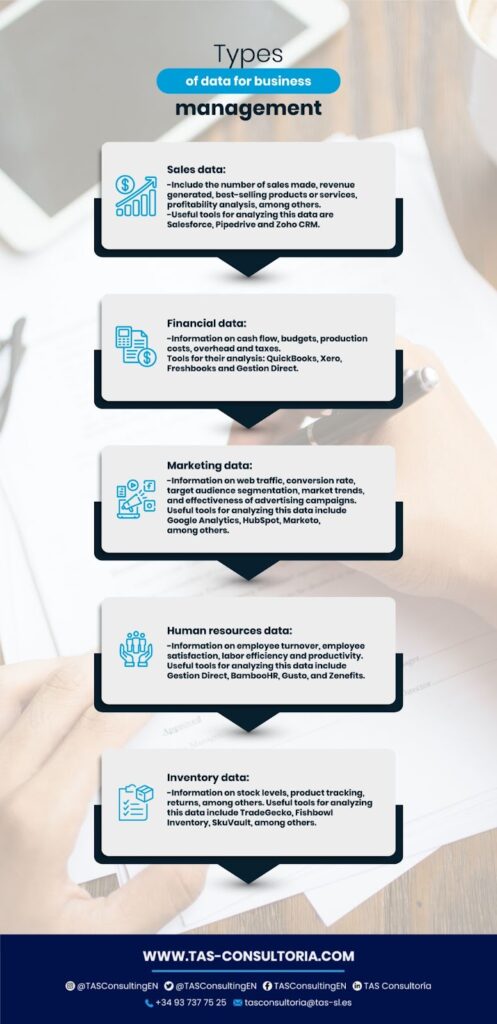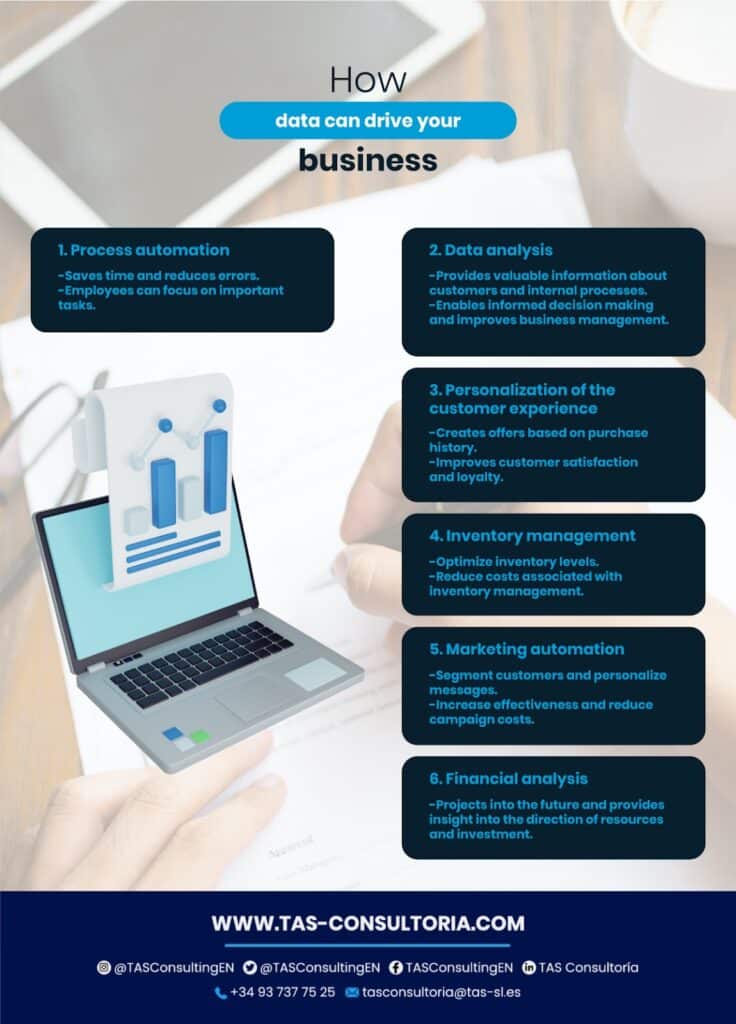
Data is an increasingly valuable tool for decision making, because it can provide valuable information about all aspects of your business. That’s why data analysis is the key to capitalizing on its full potential and maximizing business success – read on to discover how you can harness the full power of data in your business!
What is the importance of data analysis in your business management?
Today, it is crucial for companies to use data analysis as a tool for decision making, as it allows them to gain in-depth knowledge of the environment in which they operate.
By employing this approach, companies can broaden their economic outlook and improve their products and services, enabling them to keep up with the competition.
In today’s business management, an estimated 90% of the data generated by the Internet of Things (IoT) is not leveraged for analytics and decision making, according to IBM. This underscores the need for companies to develop effective data analytics strategies to capitalize on its full potential.
Here are some of the most important reasons:
Data-driven decision making
Enterprise data analytics enables you to collect, analyze and visualize data to make informed business decisions. This helps to improve the accuracy and effectiveness of decisions, as well as reduce the risks and costs associated with poor decisions.
Business process optimization
With the help of data analysis it is much easier:
- Identify bottlenecks in business processes.
- Detect and solve problems in real time.
- Provide accurate information for immediate decision making, which increases the efficiency and productivity of the company.
Regulatory compliance
Data analytics is essential to ensure regulatory compliance in business. With increased regulatory scrutiny, it is important to have good management of your company’s information (both internal and external) to ensure that it complies with legal and regulatory requirements.
Improved data quality
Proper management of enterprise data can help improve data quality, which in turn helps improve the integrity of reporting.
Data quality refers to the accuracy, completeness, consistency, relevance and timeliness of the information stored in a database or computer system.
High data quality ensures that the information is reliable and useful for decision making and data analysis.
Data quality management is an ongoing process that involves identifying and correcting input errors, eliminating duplicate or unnecessary data, and verifying the consistency and accuracy of data.
Innovation and business growth
Data analytics enables companies to identify new market opportunities, as well as develop new products and services to improve the customer experience. This can drive business growth and innovation in the enterprise.
Trend analysis and forecasting
Collecting and analyzing large amounts of data to identify trends and patterns is what makes data analysis a powerful tool for your business. You can foresee possible scenarios and adapt to them, which is critical in an increasingly changing and competitive marketplace.
You may also be interested in: Impact of health tech today
Types of data and tools for data analysis
In order to make informed business decisions, it is essential to have access to a wide variety of relevant data.
Fortunately, there are several tools available that allow you to efficiently collect and analyze this data, which facilitates the decision-making process. You can take a look at them in the image below:

You may also be interested in: B Corp: what is it and how to become one?
How can data improve business efficiency and personalization?
Companies use data in a variety of ways to improve everything from optimizing the supply chain to personalizing the customer experience. By knowing each of them and prioritizing their analysis in the operation of your business, you can improve competitiveness and business success.
The following are some of the ways in which companies have used data analysis to achieve these objectives:

Process automation
Data can be used to automate internal processes and reduce employee workload. For example, automating data entry can save time and reduce errors, allowing employees to focus on more important tasks.
Personalization of the customer experience
With deep data analytics you can personalize the customer experience, providing customized recommendations or offers based on their purchase history and online behavior. This can improve satisfaction and loyalty.
Inventory management
Based on data analysis, you can manage your inventory more efficiently. Information about product demand and product life cycle can be used to optimize inventory levels and reduce costs associated with warehousing.
Marketing automation
With data and its constant analysis, marketing campaigns are automated, including customer segmentation and message personalization. This can increase the effectiveness of any business proposition, as well as reduce the time and costs associated with campaign management.
Financial analysis
Company financial performance and future projections are part of a company’s data analysis. Financial information can help them make informed decisions about managing their resources and investing in new projects.
By using data effectively, companies can improve their competitiveness and achieve their business objectives.
The ability to effectively collect and analyze data enables companies to identify opportunities and challenges, improve operational efficiency, and make informed, strategic decisions for business growth.
You may also be interested in: Big Data: the evolution of data management
If you want to take your business to the next level, it is essential to have the support of data analytics experts to help you understand and use this valuable information to drive your company’s success.
Contact us today at tasconsultoria@tas-sl.es to schedule a professional consultation, let’s go!




Your email address will not be published .
Required fields are marked with *